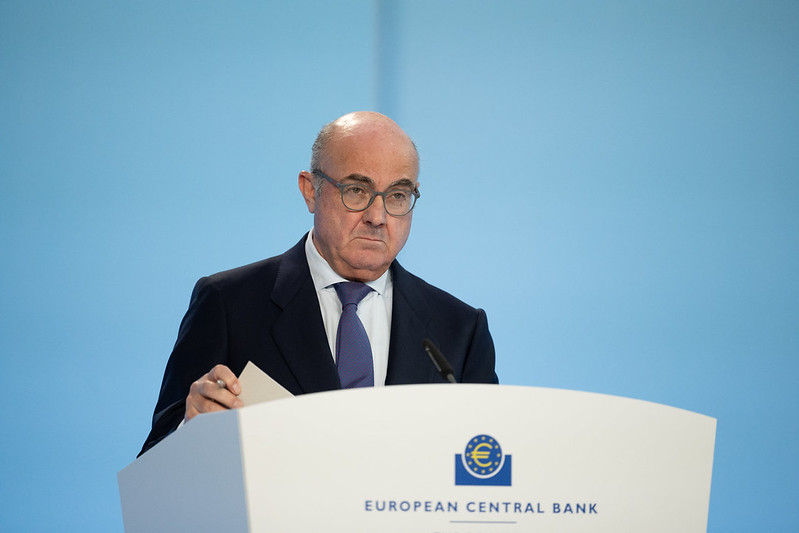ECB’s de Guindos: Risks Shifted From Concerns on High Inflation to Fears Over Growth
18 November 2024

By Marta Vilar – MADRID (Econostream) – European Central Bank Vice President Luis de Guindos said on Monday that the balance of risks on the macroeconomic side had switched from worries about inflation being too high to concerns about the economy.
In a speech at the Frankfurt Euro Finance Week, de Guindos said that consumer inflation had decreased towards the 2% target but that economic growth had 'been weaker than expected’.
De Guindos noted that the ECB had already revised the growth projections down twice in 2024: once before the summer and again in September.
‘The growth outlook is clouded by uncertainty about economic policies and the geopolitical landscape, both in the euro area and globally’, he said.
The risk of extreme events taking place could rise if trade tensions increased further, he said.
‘These cyclical headwinds compound structural issues of low productivity and weak potential euro area growth’, he said.
Ahead of the publication of the ECB's Financial Stability Review, de Guindos highlighted the three main vulnerabilities for the euro area.
‘First, record-low equity premia and compressed corporate bond spreads are signs that investors may be underestimating the likelihood and potential impact of adverse scenarios’, he said.
Increasing sovereign risks were another vulnerability for the financial sector, he said.
‘While the aggregate euro area debt-to-GDP ratio has declined considerably from its peak during the pandemic, debt levels remain high in many countries owing to persistent primary deficits’, he said.
In this situation, doubts about fiscal consolidation could bring about ‘further repricing of sovereign risk’, he said.
High lending rates were still challenging for some parts of the economy, he said, as insolvencies had been on the rise lately.
Related articles:
